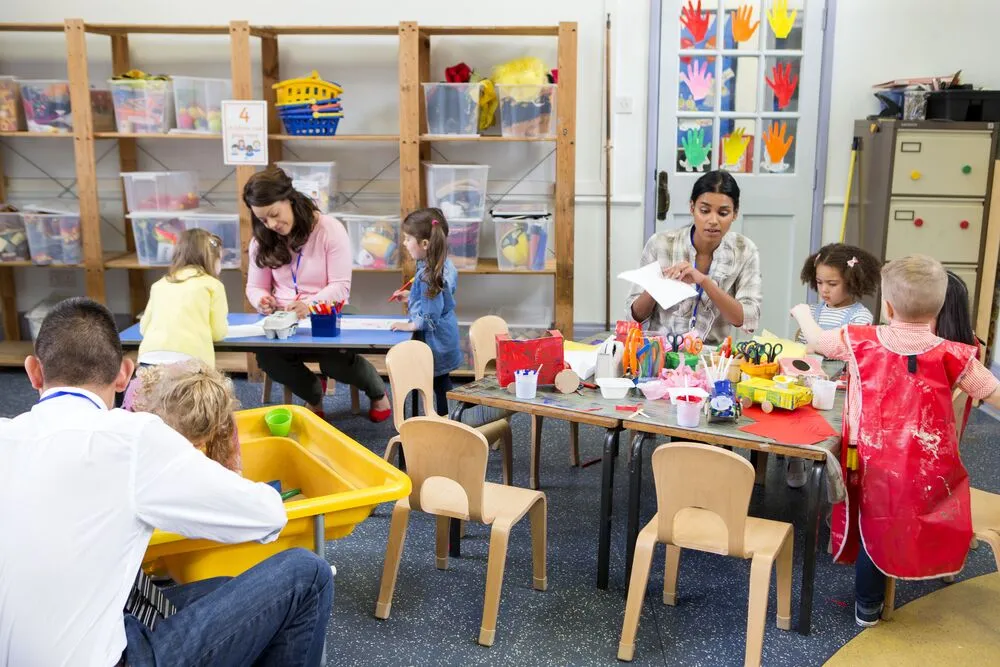Understanding the Importance of Early Education
Preschool is more than just a place where young children are looked after while parents work. It’s a crucial stage in a child’s development that lays the groundwork for future academic, social, and emotional success. Research shows that children who attend quality preschool programs are better prepared for kindergarten, perform better in elementary school, and are more likely to graduate from high school and attend college.
What Makes a Great Preschool?
Not all preschools are created equal. A strong preschool program will incorporate a mix of play-based and structured learning, focus on both academic and emotional development, and be led by trained, caring educators.
Key Features of an Effective Preschool
- Experienced and caring teachers
- Safe and stimulating environment
- Balanced curriculum with both play and academics
- Strong communication with parents
- Support for social-emotional growth
Social Development in Preschool
Children in preschool learn how to interact with peers, share toys, resolve conflicts, and express emotions in healthy ways. These social skills are just as important as academic readiness and are essential for long-term success.
Examples of Social Skills Developed
| Skill | How It’s Taught |
|---|---|
| Sharing | Through guided play and teacher modeling |
| Listening | During story time and circle discussions |
| Empathy | By encouraging kindness and discussing feelings |

Academic Foundations Built in Preschool
Although preschool may seem like all fun and games, children are actually learning vital pre-literacy and pre-math skills every day. Recognizing letters, counting objects, identifying shapes and colors — these foundational concepts prepare kids for kindergarten and beyond.
Sample Daily Schedule at a Preschool
- 8:00 AM – Arrival and Free Play
- 9:00 AM – Circle Time and Calendar
- 9:30 AM – Literacy Activities
- 10:00 AM – Snack Time
- 10:30 AM – Outdoor Play
- 11:00 AM – Math and Science Exploration
- 12:00 PM – Lunch and Rest Time
- 2:00 PM – Art and Creative Expression
- 3:00 PM – Story Time and Dismissal
The Role of Play in Learning
Play is the heart of preschool. It may look simple, but play teaches children how the world works. Through imaginative games, children develop cognitive flexibility, problem-solving skills, and even early literacy and math understanding.
Types of Play and Their Benefits
| Type of Play | Skill Developed |
|---|---|
| Imaginative Play | Creativity and language skills |
| Constructive Play | Fine motor and spatial awareness |
| Physical Play | Gross motor and coordination |
Parent Involvement in Preschool
Preschools thrive when parents are engaged. Family involvement strengthens the bond between school and home, helping children feel secure and supported. Whether through volunteering, attending events, or simply discussing daily activities, parental involvement enriches the preschool experience.
Ways Parents Can Get Involved
- Attend parent-teacher conferences
- Read to your child at home
- Help with classroom activities
- Participate in field trips
Finding the Right Preschool
Choosing the right preschool can be overwhelming. Parents should look for programs that align with their child’s needs, values, and developmental goals. Touring facilities, meeting teachers, and asking the right questions can make a big difference.
Questions to Ask When Choosing a Preschool
- What is the student-to-teacher ratio?
- How do you handle behavioral issues?
- What curriculum do you follow?
- How do you support children with different learning styles?
Conclusion
Preschool is a powerful start to a child’s educational path. It fosters independence, social skills, and a love for learning that can last a lifetime. As parents and educators, supporting high-quality early childhood education helps children grow into confident, capable individuals ready to thrive in school and beyond.